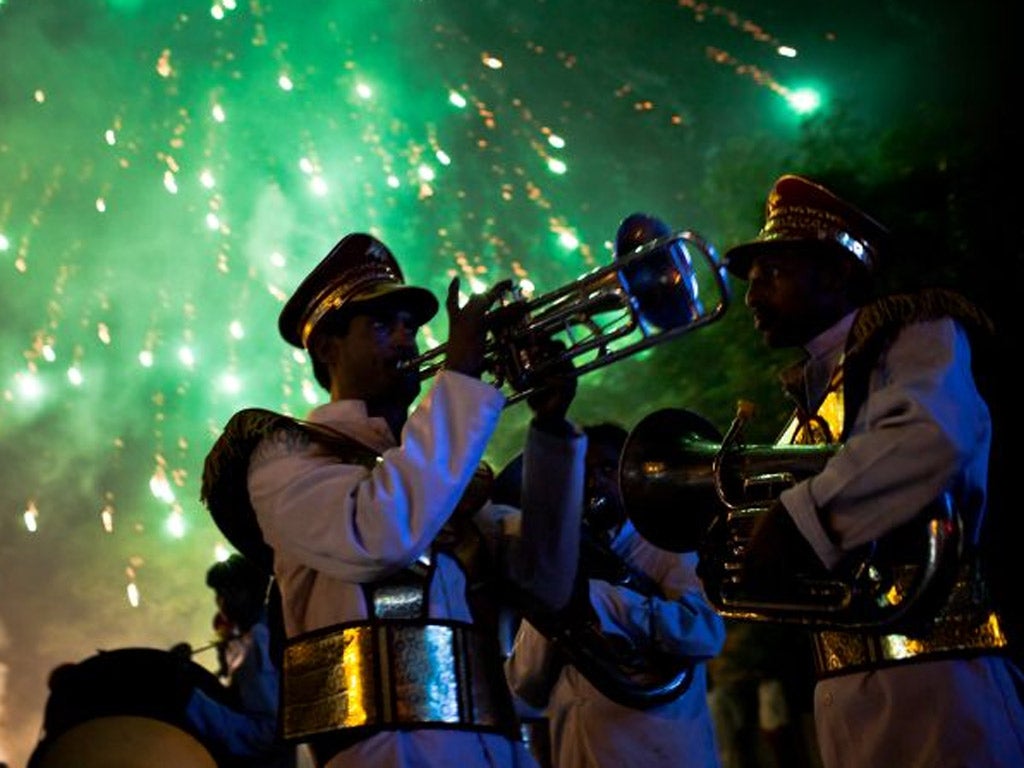Sport and the British, Radio 4, Monday-Friday World Class Brass, Radio 2, Monday Great Lives, Radio 4, Tuesday
No tickets for the Olympics? Time was, you could roll up and join in

The first few modern Olympic Games weren't up to much. Anyone could join in – you just had to turn up. In Athens in 1896, only a handful of Brits competed, including George S Robertson, a Classics don. An Oxford Blue in the hammer, he found his event wasn't included, so he competed in the shot put and the discus instead – oh, and one more event: "I put my name down for the lawn tennis so I'd have the use of a court," he said. He won bronze.
Robertson's testimony – presumably dug out of the archives, given that he died in 1967 – formed part of the first instalment of Sport and the British, an ambitious 30-parter in honour of the Games's return to the birthplace of organised sport. It's fronted by Clare Balding, who is exactly the right person – great presenter, steeped in sport.
The first five parts covered muscular Christianity – the public-school ethos that set in motion sport as we know it – as well as the start of the Olympic movement, the early days of boxing, cricket and racing, and gambling. As a former sports hack, I didn't know whether I'd learn anything new. Much of it was familiar to me, but not, I suspect, to the layperson. I particularly liked the English historian G M Trevelyan's observation that if French aristos had deigned to play cricket with their peasants, the Revolution would never have happened.
The Empire, we heard, was crucial in spreading the sports gospel – and it did so largely to a brass soundtrack. In the first of three instalments of World Class Brass, Colin Salmon – actor and trumpeter – looked at India, which has taken the whole brass-band concept and turned it into something wild and magnificent.
The bands' principal raison d'être is to play at the ultra-lavish weddings Indians go in for. The programme followed one of the biggest, the Jea Band. "It was complete chaos," one of the Jea players said after a ceremony that involved multiple ensembles, "but it was great at the end when the bands all played at once."
If you've never heard Indian brass music, you really should, with its machine-gun drums and crazy, skittering rhythms. I guarantee you will not be able to keep still.
Long before the British Empire strutted and marched across India, the Mameluks from Turkey established an empire of their own. One of their number, Razia al-Din, who ruled as the Sultan of Delhi in the 13th century, was the subject of the first of the returning Great Lives (now on its 26th series). She sounds a formidable woman, much like her advocate on the programme, the government minister Baroness Warsi, who was busting a gut to find contemporary parallels.
"I'm absolutely convinced she was a Conservative," Warsi said. "She had a we're-all-in-this-together approach. She wasn't a politician for second-term priorities."
Not that Razia got the chance – voted out on the battlefield after three-and-a-half years in the job, and killed, in the end, by robbers. A fate surely befitting more than a few of our modern leaders.
Subscribe to Independent Premium to bookmark this article
Want to bookmark your favourite articles and stories to read or reference later? Start your Independent Premium subscription today.

Join our commenting forum
Join thought-provoking conversations, follow other Independent readers and see their replies